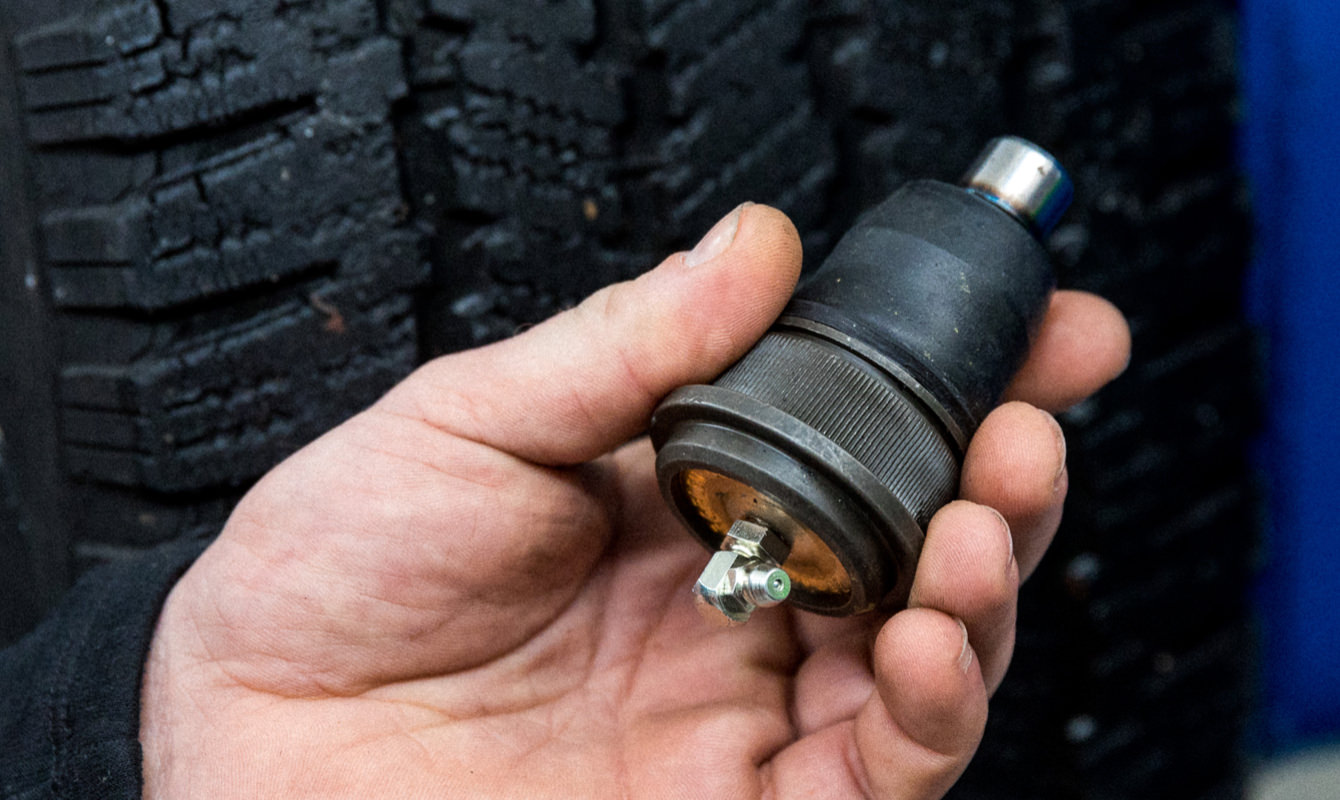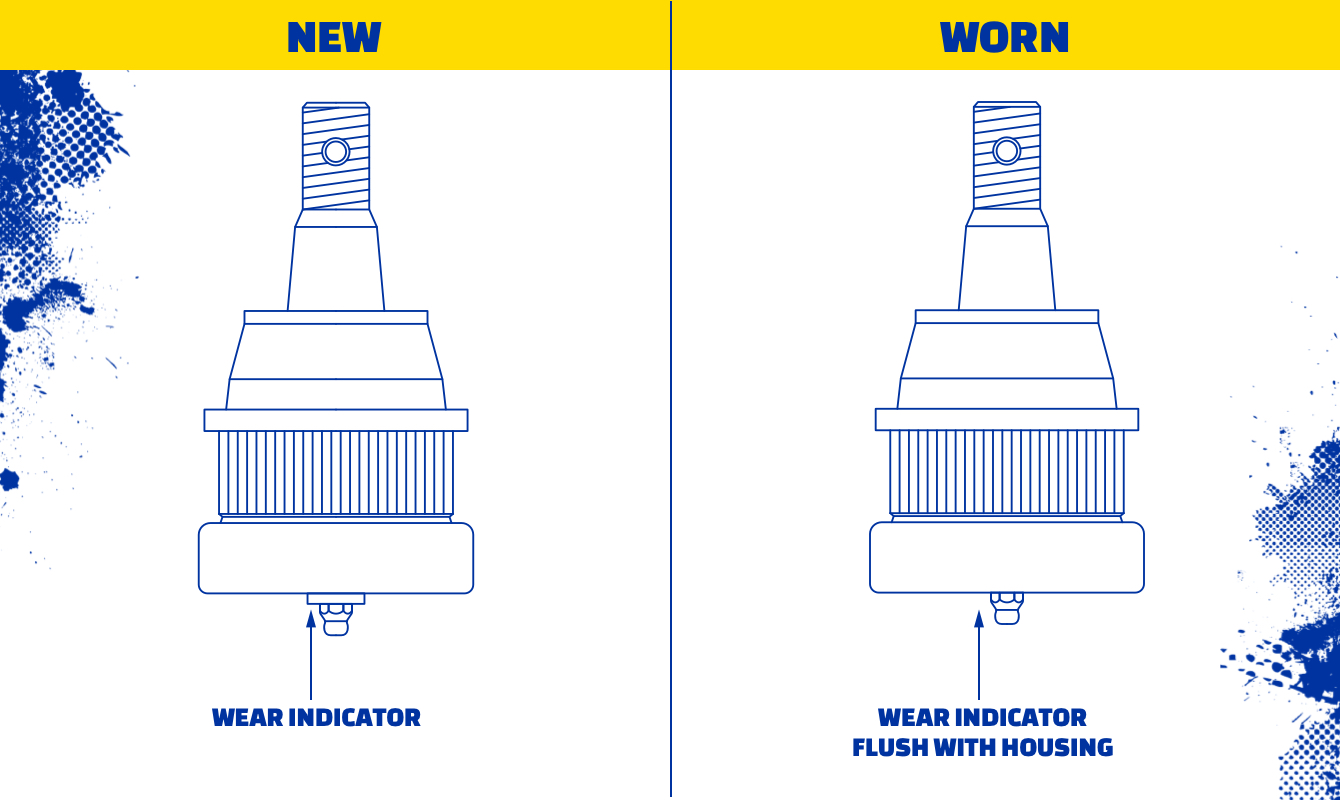What are ball joints?

The front suspension of your vehicle is a pretty remarkable system. A complex assembly of control links and wheel hubs, the front suspension not only allows your front wheels to move up and down independently of one another to give you a smooth ride, it also makes both wheels turn left or right together so that you can make your vehicle go where you need to go.
Although there are various types of front suspensions, they all share a common component that enables them to do what they are designed to do: the ball joint. Ball joints are the critical components that connect your wheel hubs to the control arms. They provide universal pivoting movement between the wheel hubs and control arms to give you a smooth ride and allow you to precisely control your vehicle. If a ball joint fails, it can have dire consequences. Read on to learn how to recognize the signs and symptoms of a failing ball joint.
Symptoms of loose ball joints
While ball joints may last 70,000 miles or more, they don’t last forever. Their actual lifespan will depend on your driving habits, road conditions and exposure to road splash and salt. As the ball and socket wear together, the normally close tolerance between them will increase and the ball joint will become loose over time.
Sound — Usually the first indication of worn or loose ball joints will be a faint, intermittent clunking noise that seems to be coming from a corner of your vehicle. The sound may be more pronounced when going over a bump or a dip or when going around a corner. While the sound may be faint at first, as time goes on and the wear continues, the sound will become louder and more frequent.
Steering — Worn ball joints can affect your vehicle’s steering, usually making the steering sloppy or stiff depending on how the ball joint is wearing. Feeling a vibration in the steering wheel while driving down a level, straight road, or your vehicle drifting to the right or left when going over bumps may also be signs of ball joint wear.
Front End Shimmy — Loose or worn suspension system components such as ball joints can contribute to front end shimmy. Worn ball joints become loose in the socket and cause excessive vibration when the vehicle is in motion. You may feel vibration through the seat, steering wheel or brake pedal.
Tires — Uneven tire wear may be a sign that your ball joints are wearing out. Specifically, if the inner or outer edges of your front tires are wearing out faster than the rest of the tread, there is a good chance that the cause is worn ball joints. However, if both edges are wearing out faster than the middle, the problem is not ball joints, but under-inflation of your tires.
Ball Joint Wear Indicators
-1706210269583.jpg)
Ball joints for some older applications have a built-in wear indicator which makes identifying a worn ball joint easy. Wear indicators aren't common on newer applications because the ball joints are loaded in a different direction which makes them incompatible with wear indicators. If your vehicle’s ball joint doesn't have a wear indicator, you'll have to use a different technique to inspect the ball joint for looseness.

Wear indicators include a movable grease fitting. When a collar of the grease fitting is flush with or below the bottom of the ball joint housing, the ball joint is worn and should be replaced.
Other types have a wear indicator pin protruding through a hole in the bottom of the ball joint. As long as the pin is visible, the ball joint is OK. When it becomes flush with the housing or is not visible, then the ball joint should be replaced.
What are the risks of driving with a bad ball joint?
A worn ball joint is not a problem that should be ignored. If the wear becomes severe, the stud may separate from the housing resulting in immediate loss of control of your vehicle. Should you suspect worn ball joints, you should have your vehicle checked by a professional technician who has experience with diagnosing suspension problems.
Learn more about premium steering and suspension parts, find your car part, or find where to buy your auto part today.
The content in this article is for informational purposes only. You should consult with a certified technician or mechanic if you have questions relating to any of the topics covered herein. Tenneco will not be liable for any loss or damage caused by your reliance on any content.
Other Parts For Your Vehicle
MOOG® offers a wide variety of auto parts for all your vehicle needs.
Check them out today!